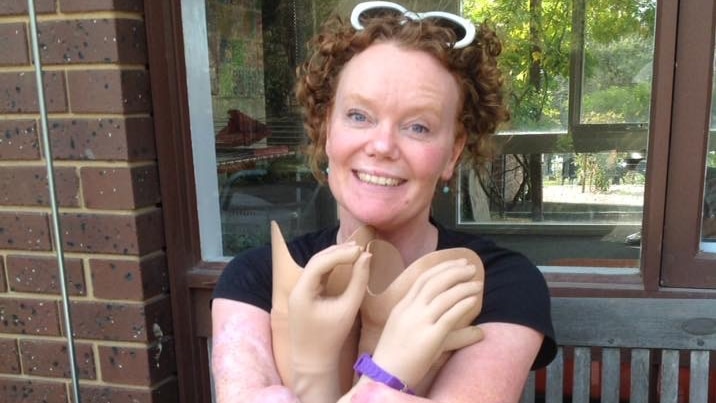A few days ago, I visited a local pub with a girlfriend, and standing at the bar together we ordered two glasses of wine.
The bartender promptly placed two stemless glasses on the counter and began pouring.
“Sorry but do you have glasses with stems?” I asked.
Instantly his demeanor soured and after finding a boringly old-fashioned wine glass, he filled it up with an exaggerated look of disdain.
“Oh, I don’t want to be precious, but I have prosthetic hands and there’s no way I could pick up that glass without smashing it,” I said.
My girlfriend and I casually laughed at the situation before the necessary apologies began rolling in.
Perhaps I should have stated it up front and saved everyone from the whole judgment-turned-apology exercise, but the situation was a fast-paced transaction with no room for explanations.
But life is full of fast-paced exchanges between strangers. And in the split seconds we have to process what is going on, we humans seem to regularly squeeze in enormous amounts of expectation, judgment and criticism.
So why has our community become so uncomfortable with the unexpected?
I have used prosthetic hands every day since my amputations nine years ago.
They are quite amazing gadgets. Able to open and close and with their skin-coloured cosmetic covers, they look just like real hands. Nail polish and all.
With them I can drive a car by simply grabbing a knob bolted onto my steering wheel and turning off the hand’s electric motor.
I can also hold a pen, sign my name and write. Amazingly my handwriting even looks exactly the same as it did before my amputations.
My robotic hands allow me to ride a bike, chop veggies and even paint.
But although they are life changing for a double arm amputee like me, my robotic hands are limiting in ways you wouldn’t always expect.
Simply buttering toast a slight twist of the wrist and even though these hands will easily require holding a knife, the wrist is static, so no warm toast for me when I’m home alone.
Also, my mobile phone doesn’t recognize the fingertips, so I need to use my nose or tongue to make calls and send messages.
But when I meet people for the first time, no one expects you to have robotic limbs. This always makes the introductory handshake loads of fun.
In the early days I would offer my cold, hard plastic hand without any explanation. Some people managed to keep a straight face and amazingly they would not let out a peep of acknowledgment.
But most would be startled and immediately apologise, often saying “Oh I’m sorry, I had no idea.”
I have learned over the years that this uncomfortable exchange seems to only rattle people.
So now I always stop and say, “Hang on a sec, I have prosthetic hands and I need to make sure I don’t hurt you.” Then I close my hand before shaking theirs.
I do this for two reasons.
Firstly, they have a strength of 26 kilos, and it is incredibly painful if I accidentally squeeze your hand. It’s a lesson I learned early on as I watched an elderly man’s face wince in pain.
Secondly, it gives them a chance to process the idea before they are presented with something they were not expecting.
That way there is no apology needed and we can all simply introduce ourselves and move on.
But it’s been interesting to see how people are reacting to the various additional accommodations that I’ve been asking for recently.
For example, finger food. Not a food group designed to be eaten with robotic fingers.
A few weeks ago, I attended a function at a local club and when the chef brought out the finger food to the table and inquired if we needed anything else. I asked to borrow a fork.
“What kind of forks?” I have asked.
“Just a regular fork would be great,” I said.
He returned with a bowl of cake forks and handing them over said, “It is finger food, normally you’d just use your fingers.” And yes, I have tut-tutted as he went.
Certainly, he is quite right and although no one wants to be too difficult, if I used my fingers, I would be picking sushi out from between my fingertips for the next few days.
“Sorry but I have prosthetic hands and I can’t do finger food.”
“Oh God, I’m so sorry.” And sure enough, he continued apologizing for most of the night.
Perhaps as a community, we could all try harder when we come across others that don’t fit the mould.
Instead of being surprised, we could focus on the ways we can accommodate them and their varying abilities. That way all of us might experience the true charms of our humanity, in all its tiny and joyous nuances.
And then perhaps when you meet someone like me the moment won’t require an immediate apology.
ABC Everyday in your inbox
Get our newsletter for the best of ABC Everyday every week
posted , updated
.
